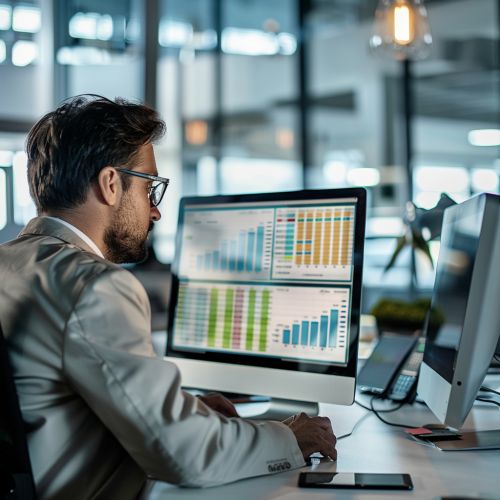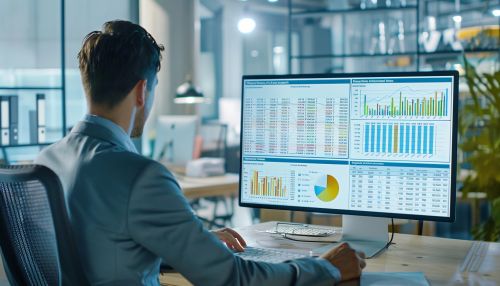The Economist
Overview
The Economist is a professional who studies the production, distribution, and consumption of goods and services. Economists analyze economic data, develop economic theories, and provide insights into economic policies. Their work is crucial in understanding how economies function and in advising governments, businesses, and individuals on economic decisions.
Historical Background
The role of the economist has evolved significantly over time. The earliest economists, such as Adam Smith, focused on the principles of classical economics, which emphasized the importance of free markets and the invisible hand guiding economic activity. Over the centuries, the field has expanded to include various schools of thought, such as Keynesian economics, which advocates for government intervention in the economy, and neoclassical economics, which focuses on the determination of goods, outputs, and income distributions in markets through supply and demand.
Educational Requirements
To become an economist, one typically needs a strong educational background in economics and related fields. Most economists hold at least a bachelor's degree in economics, although many positions require a master's degree or a Ph.D.. Coursework usually includes subjects such as microeconomics, macroeconomics, econometrics, and economic theory. Advanced degrees often involve specialized research and the completion of a dissertation.
Areas of Specialization
Economists can specialize in various subfields, each focusing on different aspects of economic activity. Some of the main areas of specialization include:
Microeconomics
Microeconomics studies individual and business behavior in decision-making and the allocation of resources. It examines how these decisions affect the supply and demand for goods and services, which in turn determines prices.
Macroeconomics
Macroeconomics looks at the economy as a whole, focusing on large-scale economic factors such as national productivity, inflation, unemployment, and fiscal and monetary policy. It aims to understand the aggregate outcomes of individual economic actions.
Econometrics
Econometrics involves the application of statistical and mathematical models to economic data. Econometricians use these models to test hypotheses and forecast future economic trends.
Development Economics
Development economics focuses on improving fiscal, economic, and social conditions in developing countries. It examines issues such as poverty, inequality, and economic growth.
International Economics
International economics studies the flow of goods, services, and capital across international borders. It includes the analysis of trade policies, exchange rates, and the impact of globalization.
Behavioral Economics
Behavioral economics combines insights from psychology and economics to understand how individuals make economic decisions. It challenges the assumption of rational behavior in traditional economic theories.
Professional Roles and Responsibilities
Economists work in various settings, including academia, government agencies, private industry, and international organizations. Their roles and responsibilities can vary widely depending on their area of specialization and the sector in which they work. Common tasks include:
- Conducting research and analysis on economic issues.
- Developing economic models and forecasts.
- Advising policymakers on economic policy.
- Writing reports and academic papers.
- Teaching and mentoring students in academic settings.
- Presenting findings at conferences and seminars.
Tools and Methods
Economists use a variety of tools and methods to conduct their research and analysis. These include:
- **Statistical Software:** Programs such as Stata, R, and SAS are commonly used for data analysis.
- **Economic Models:** Theoretical models help economists understand complex economic phenomena and predict future trends.
- **Surveys and Data Collection:** Economists often design and conduct surveys to gather data on economic behavior and preferences.
- **Mathematical Techniques:** Calculus, linear algebra, and other mathematical methods are used to develop and solve economic models.
Impact on Policy and Society
Economists play a crucial role in shaping public policy and societal outcomes. Their research and analysis inform decisions on a wide range of issues, including:
- **Monetary Policy:** Central banks rely on economists to develop and implement policies that control inflation and stabilize the economy.
- **Fiscal Policy:** Governments use economic analysis to design tax policies and public spending programs.
- **Labor Markets:** Economists study labor market trends and advise on policies to reduce unemployment and improve job quality.
- **Environmental Policy:** Economists analyze the economic impact of environmental regulations and develop strategies for sustainable development.
Challenges and Ethical Considerations
Economists face several challenges and ethical considerations in their work. These include:
- **Data Limitations:** Reliable data is essential for accurate economic analysis, but it can be difficult to obtain.
- **Model Uncertainty:** Economic models are simplifications of reality and may not always accurately predict outcomes.
- **Bias and Objectivity:** Economists must strive to remain objective and avoid biases that could influence their analysis.
- **Impact on Society:** Economic policies can have significant consequences for individuals and communities, and economists must consider the ethical implications of their recommendations.
Future Trends
The field of economics is continually evolving, and several trends are likely to shape its future:
- **Big Data:** The increasing availability of large datasets offers new opportunities for economic analysis and forecasting.
- **Interdisciplinary Research:** Collaboration with other disciplines, such as psychology, sociology, and computer science, is becoming more common.
- **Globalization:** The interconnectedness of the global economy presents new challenges and opportunities for economists.
- **Technological Change:** Advances in technology, such as artificial intelligence and machine learning, are transforming economic research and analysis.
See Also
- Adam Smith
- Keynesian economics
- Neoclassical economics
- Microeconomics
- Macroeconomics
- Econometrics
- Development economics
- International economics
- Behavioral economics
- Monetary policy
- Fiscal policy
- Big data


